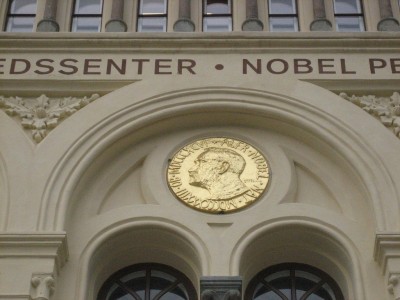
The Nobel Peace Prize was established in 1901 for the purpose of rewarding those who have “done the most or the best work for fraternity between nations, for the abolition or reduction of standing armies and for the holding and promotion of peace congresses.” One would then assume that the awarding of the prize is based on quantifiable results, on what has actually been achieved and has had a great, positive impact on the international community.
On October 11, 2013, it was announced that the Organization for the Prohibition of Chemical Weapons had been awarded the 2013 Nobel Peace Prize. In justifying their decision as to the recipient of the prize, the awards committee stated “the conventions and the work of the OPCW have defined the use of chemical weapons as a taboo under international law.”
The awarding of the Nobel Peace Prize has proven to, once again, be a complete farce. If Alfred Nobel established the peace prize to be awarded to those who have done the most or best work towards furthering international peace, it follows (at least in my mind), that the criteria for selecting the recipient of the prize should be results based, not goals based. If the Organization for the Prohibition of Chemical Weapons were properly doing its job, there would be no chemical weapons used this year. It’s great that the OPCW has ambitious objectives and wants to affect change in the world, but what has the organization really achieved thus far?
I also feel that the assertions of the awards committee regarding the OPCW’s work in defining “the use of chemical weapons as taboo under international law” need to be addressed here. This claim is fundamentally incorrect. If one runs a Google search on the words “chemical weapons taboo,” the first three results are pieces of academic literature, two of them books about the “taboo that exists regarding chemical weapons,” both of them published prior to the establishment of the OPCW in 1997. How, then, has the OPCW’s work defined the use of chemical weapons as a taboo, if this taboo predates the existence of the organization? (As a side point: many historians date the chemical weapons taboo back to the First and Second World Wars – again, a very long time before the idea that begot the OPCW was even conceived.)
The committee’s decision raises another question: why hasn’t the OPCW been awarded the Nobel Peace Prize before now? No great strides have been made this past year, and it seems that the contributing factor to the committee’s decision to give this award now is the current situation in the Middle East, vis–à–vis Syria. In years where there were no major chemical weapons incidents, the OPCW was never given recognition for its work, yet all of a sudden, its contributions are considered worthy of a Nobel Prize?
This situation is remarkably similar to the trend of the past several years, where Nobel Peace Prizes have been awarded to those who have achieved very little, in terms of tangible results, in the realm of international peace and cooperation. Most notably, in 2009, President Barak Obama was awarded the Nobel Peace Prize for his “efforts to promote nuclear nonproliferation,” three months after stating, “Iran might have some right to nuclear energy, provided that it proves…that its aspirations are peaceful.”
The Nobel Peace Prize is, at this point in time, a complete joke. The prize could be used to motivate and to reward achievement, but is instead being used to reward goals and aspirations. While objectives are great, the Nobel Peace Prize has to go back to being about who actually sees results in promoting peace, not who hopes for it the most.
Eliana Glogauer is a student at IDC Herzliya.
[fbshare type=”button”]

